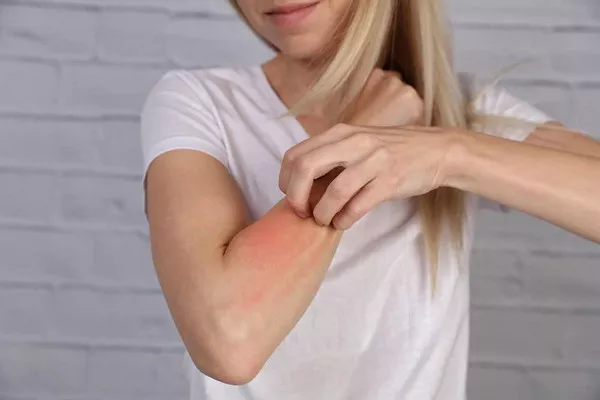Hives, those pesky red, raised welts that appear on your skin, can be not only uncomfortable but also distressing. They’re often caused by allergic reactions to various triggers, leaving you itching and searching for relief. In this article, we’ll explore effective ways to stop hives from allergic reactions, providing you with valuable insights on managing this skin condition.
1. Identify the Trigger:
The first step in stopping hives from an allergic reaction is to identify the trigger. Hives can be caused by a range of factors, including certain foods, medications, insect stings, pollen, pet dander, and even stress. Keeping track of when hives occur and what you were exposed to beforehand can help pinpoint the culprit.
Consult a Healthcare Professional: If you’re unsure about the trigger, consider consulting an allergist or dermatologist. They can perform tests, such as patch testing or blood tests, to determine what allergen might be causing your hives.
2. Avoid the Allergen:
Once you’ve identified the trigger, the most effective way to prevent hives is to avoid the allergen altogether. While this might not always be possible, taking proactive steps to minimize exposure can significantly reduce the likelihood of hives.
Modify Your Environment: If you’re allergic to pet dander, create pet-free zones in your home, and wash your hands after interacting with animals.
Check Labels: For food or medication allergies, carefully read labels to ensure you’re not consuming anything that could trigger hives.
3. Over-the-Counter Solutions:
When hives do appear, there are over-the-counter options that can provide relief from itching and discomfort. Antihistamines are often recommended, as they block the release of histamine—a chemical that contributes to hives.
Non-Drowsy Formulas: Opt for non-drowsy antihistamines if you need to remain alert and active throughout the day.
Follow Dosage Instructions: Always follow the recommended dosage instructions on the packaging or as advised by a healthcare professional.
4. Topical Treatments:
For localized itching and discomfort, topical treatments can be beneficial in providing immediate relief.
Calming Creams: Look for creams or lotions containing ingredients like colloidal oatmeal or hydrocortisone, which can soothe inflamed skin.
5. Cold Compresses:
Applying a cold compress to the affected area can help reduce itching and swelling associated with hives. Wrap ice or a cold pack in a cloth and gently press it against the skin for short intervals.
6. Stay Hydrated:
Drinking plenty of water can help maintain your skin’s moisture levels, potentially alleviating the discomfort associated with hives.
7. Stress Management:
Stress is known to exacerbate hives in some individuals. Practicing stress-reduction techniques such as deep breathing, meditation, and yoga can help minimize the occurrence of hives.
8. Consult a Healthcare Professional:
If hives are persistent, severe, or accompanied by other symptoms like difficulty breathing, swelling of the face or lips, or dizziness, seek medical attention immediately. These could be signs of a more severe allergic reaction that requires prompt treatment.
9. Long-Term Management:
In some cases, chronic hives might require more intensive management. Your healthcare provider might recommend prescription-strength antihistamines or other medications to control symptoms and prevent flare-ups.
Conclusion:
Dealing with hives caused by allergic reactions can be frustrating, but with the right approach, you can effectively manage and prevent them. Identifying triggers, avoiding allergens, and employing over-the-counter remedies are all steps you can take to alleviate itching and discomfort. Remember, consulting a healthcare professional is crucial for proper diagnosis and management, especially if your hives are severe or recurrent.
By taking proactive measures and staying informed, you can regain control over your skin’s health and well-being, ensuring that hives no longer disrupt your daily life.


